By: Tracey L. Kelley
In the spirits world, female master blenders and head distillers are creating more buzz than ever, not simply for being “the first” but for their positions as innovative navigators of taste, brand and industry.
With this angle in mind, we reached out to a few notable makers who could share valuable insight to help propel your efforts. We asked all of them three questions:
1. What are you most proud of regarding your craft?
2. What’s the top lesson you’ve learned as a businessperson/distiller?
3. What advice would you give women entering the industry?
Here’s what they shared with Beverage Master Magazine.
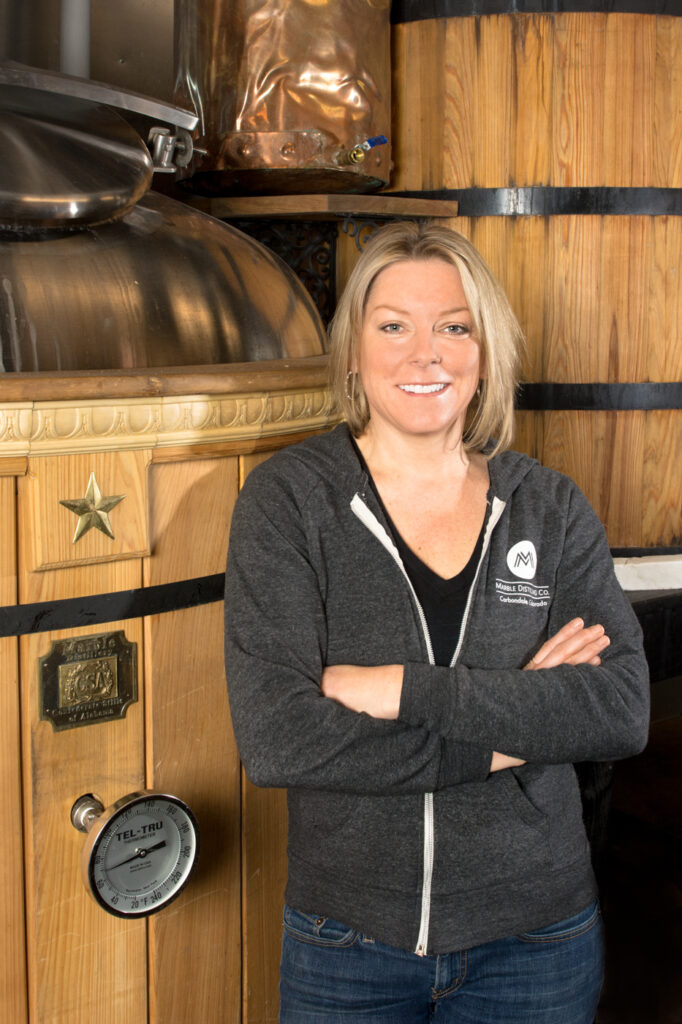
Connie Baker—Head Distiller and Queen Bee—Marble Distilling Co.
A former pharmaceutical sales consultant, eco-minded Baker went to distilling school in 2010. She now leads a family- and friends-owned and operated business in Carbondale, Colorado, that includes the distillery, two bars and an inn. Maintaining local sustainability is important: her grains, water, and filtering marble are all sourced in the state.
Signature Spirits: Moonlight Expresso, Gingercello, Vodka 80°
1. Marble Distilling Co. has a first of its kind Water & Energy Thermal System (WETS) that reuses 100% of our process water and harvests the energy created through distillation, saving more than four million gallons of water and reusing 1.8 billion BTUs (20 homes) of energy annually. I’m proud that while we’re creating award-winning craft spirits, we’re being sustainable and thoughtful about the planet and natural resources. Water is our most precious resource in Colorado, so we’re doing everything we can to “drink sustainably” and “save the planet one bottle at a time.”
2. Never give up, and believe in yourself and your craft: fear is failure, and work ethic is second-to-none.
3. Do your homework—maybe even work for an existing distillery for a time. And don’t be intimidated by the fact that the distilling industry has been historically male-dominated. We women have great noses and palates, are thoughtful, creative and bring unique perspectives to a previously male-run industry.
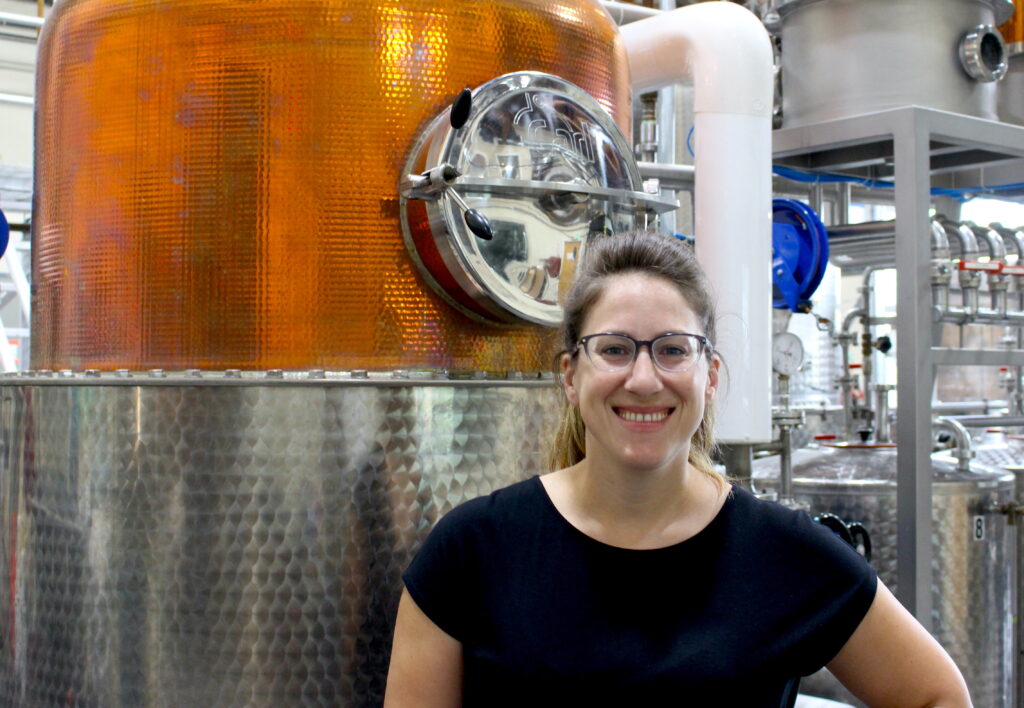
Krystal Goulart—Head Distiller—Spirit Works Distillery
Spirit Works Distillery owners Ashby and Timo Marshall celebrate female-driven innovation at this small distillery in Sebastopol, California, and give Goulart and her team plenty of opportunity to craft with skill and instinct. In July 2020, the American Distilling Institute named the organization Distillery of the Year and extended its Bubble Cap Award for diversity and community engagement.
Signature Spirits: Sloe Gin, Barrel Reserve Sloe Gin, Vodka, Four Grain Straight Bourbon
1. First, an absolute trust in my palate, which is necessary when making “cuts” at the still, blending and product developing. Sensing subtle flavor and textural nuances within a run is what helps maintain a house profile as much as it also defines a distiller’s signature. Second, my ability to understand equipment and process timing so that I can develop efficient methods of working to increase speed and productivity. The best production hand is one who maintains speed with the least amount of movement.
2. Being part of the craft distilling industry is, first and foremost, a passion play. The goal is to provide an environment of inspiration, education and exploration so you can stand together on new frontiers. Though deadlines and malfunctioning equipment might get in the way, cultivating employee and client relationships creates a robust team that can withstand any challenge.
3. Learn all aspects of the business, from pressure-washing drains to making cocktails. Share respect and value with your team members, your production space and the products you make. Embrace opportunities for future growth or change. Be fearless in the face of challenge, enjoy the ride and embrace your personal evolution.
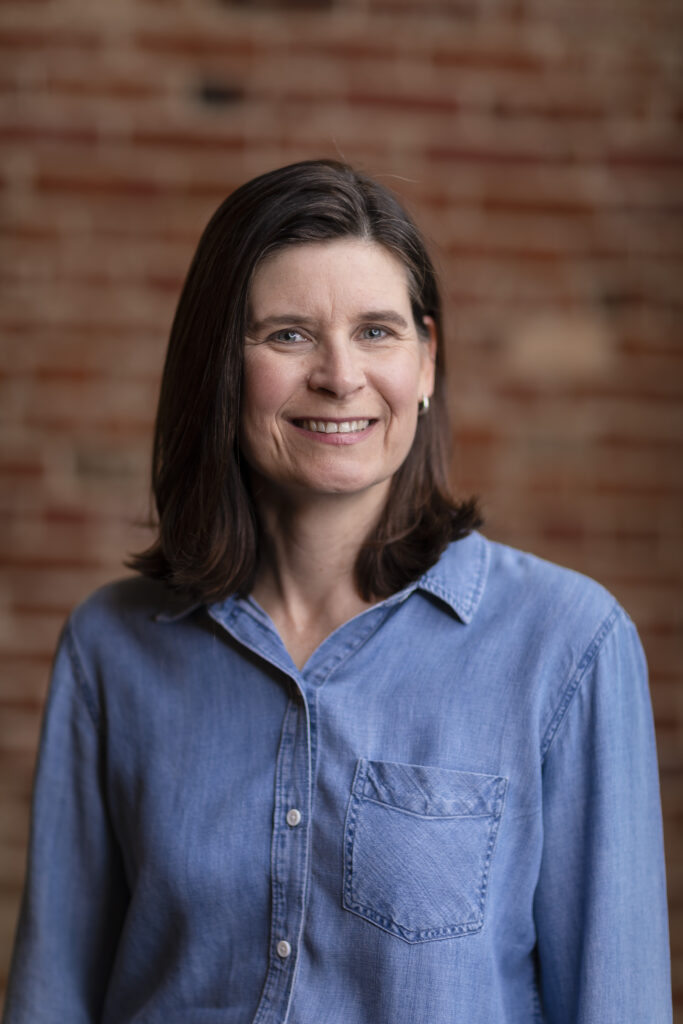
Becky Harris—Co-Founder and Chief Distiller—Catoctin Creek Distillery
Harris, a former chemical engineer, formed Catoctin Creek in Purcellville, Virginia, with husband Scott, in 2009. Considered Virginia’s “Most Awarded Spirits,” Harris celebrates her state’s heritage and history through many aspects of the brand and produces a vibrant private single cask expression program.
Signature Spirits: Roundhouse Rye, Rabble Rouser Bottled in Bond, 1757 Virginia Brandy XO
1. I’m incredibly proud of how our vision and product have matured in the past several years. Catoctin Creek has always been grain-to-glass, but we have really leaned into our identity as the Virginia Rye Whisky, incorporating the regional grain, terroir and even wood to highlight our primary and unique focus on 100% rye mashbill whiskies. It sounds simple, but really learning who you are as a company is an evolution.
2. As a chemical engineer, I always appreciated the technical challenges and achievement of making delicious whisky. Over the past 11 years, I’ve grown to appreciate the visual and story aspects of this business. Engaging more on the marketing aspects of what we do has not only improved my communication skills but also made me more confident as a founder and leader in a business that I entered in my 40s.
3. I would recommend this to everyone: join one of the professional organizations available to you—volunteer to serve. You’ll gain knowledge, friendships and a better understanding of the industry and the best ways to navigate it for your company, your employees and even yourself.
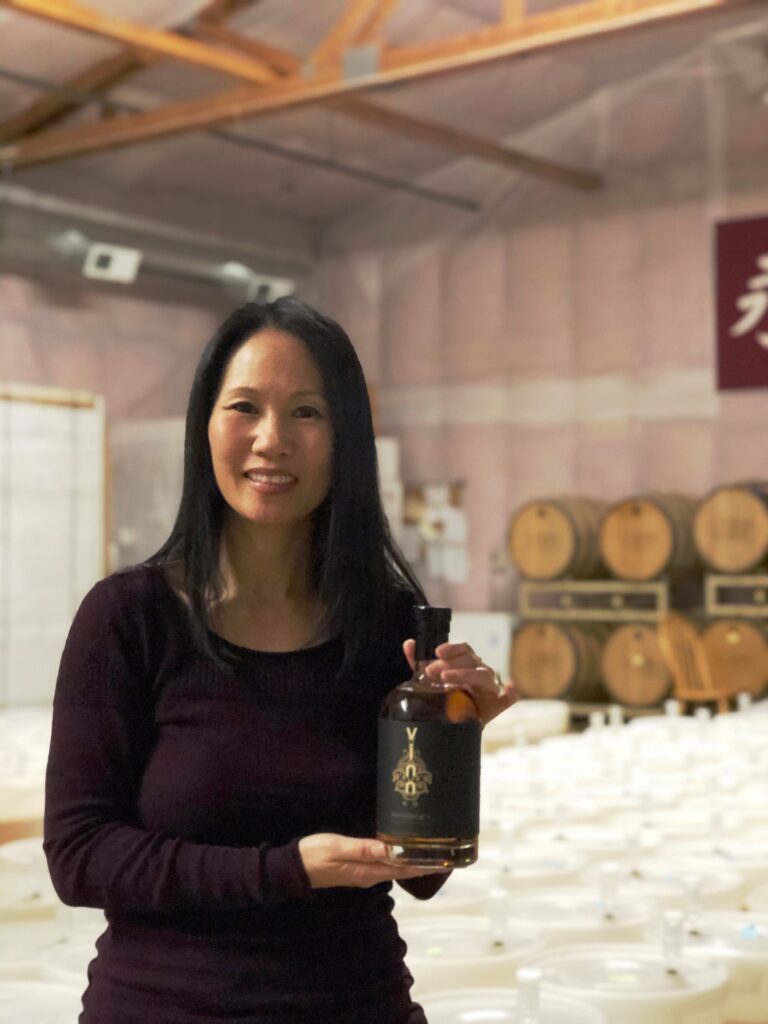
Lein and Michelle Ly—Co-Founders and Head Distiller—Vinn Distillery
Seven generations of the Ly family have crafted Baijiu, a 4,000-year-old Chinese rice liquor. In 2009, Phan Ly and wife, Kim Trinh, started Vinn Distillery in Portland, Oregon, to carry on this “white liquor” tradition in the United States. Today, five Ly siblings share various operational roles, with Lein as head distiller and sister Michelle handling sales and marketing.
Signature Spirits: Vinn Baijiu, Baijiu Family Reserve, Whiskey, Vodka
1. We’re most proud that we make everything from scratch using our family’s traditional methods, and to introduce one of the oldest and most-consumed spirits in the world to the general market here in the U.S. Using non-GMO rice products, we were the first to produce Baijiu, a rice vodka, a rice whiskey, and flavored Baijiu in America.
2. The top lesson we’ve learned is that introducing something different, like Baijiu, to the market, is extremely difficult. Every sale requires an explanation of what the product is and how to consume it.
3. My advice would be to have a target audience in mind, find a niche and dominate it.
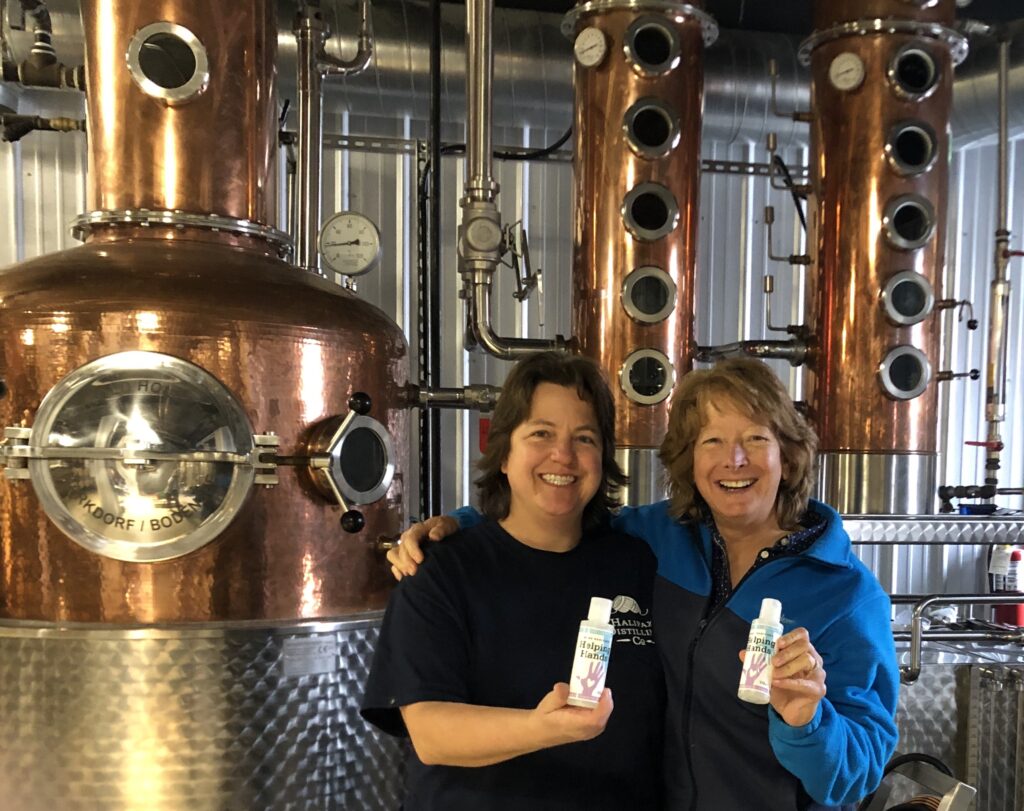
Julie Shore and Arla Johnson—Co-Founders and Head Distiller—Halifax Distilling Company
Business and life partners Shore, a former dental hygienist, and Johnson, a counselor, previously owned and operated Prince Edward Distillery, home of Canada’s first potato vodka, before launching Halifax Distilling Company in Nova Scotia in 2016. Shore, a fourth-generation distiller, now focuses on a Maritimes favorite, rum.
Signature Spirits: J.D. Shore Rum Cream, Black Rum, Gold Rum
1. I love creating and visiting other distilleries to taste their creations. It’s so exciting! This industry has grown so much since we first distilled in 2008. It has brought such awareness to the public and gained much support! This is no small feat when the big conglomerates dominate the industry—to be able to carve out a piece from them is a very proud feeling!
2. As a businesswoman, I’m still learning. Seems we learn everything the hard way! I think the top lesson that I’ve stumbled across is I try to be a real part of my community—and not just for the social media posts either. We want to help out when we can. If someone asks us for something, we really want to be there for them. Johnson adds: “’No’ does not mean no—you have to push back.”
3. Follow your dream, and don’t take anyone’s shit! Seriously, there are folks who will get in your way—don’t waste time with them. Figure out how to get it done without them. If—and this will happen, too—you have to work with them, swallow hard and compliment the hell out of them. These folks trying their best to prevent you from succeeding typically have huge egos, and complimenting them really works. Just try not to sound sarcastic. Johnson adds: “You have to have passion and tenacity. You have to push through the challenges.”
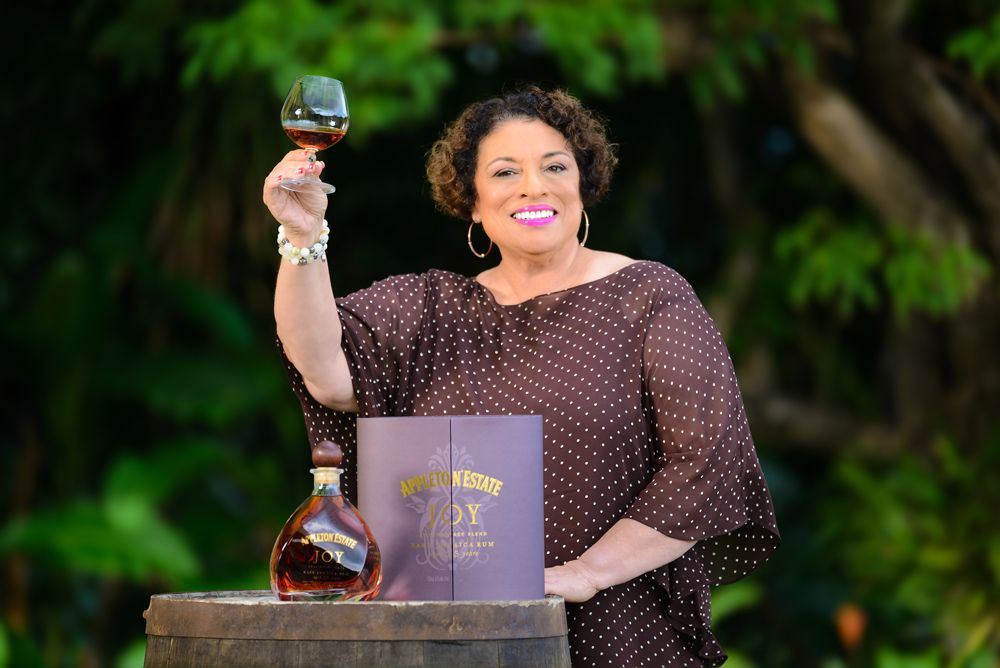
Joy Spence—Master Blender—Appleton Estate Jamaica Rum
The grand dame of master blending, chemist Spence has spent nearly 40 years crafting Appleton Estate’s centuries’ old tradition for the modern age—first working with the master blender, then assuming that role in 1997. Along with creating special blends for presidents and princes, she mentors Nassau Valley high school students in chemistry.
Signature Spirits: Appleton Estate Signature Jamaica Rum, 12-Year-Old Rare Casks Jamaica Rum, 8-Year-Old Reserve Jamaica Rum
1. As a master blender responsible for the legacy of our rum, I’m most proud of the several limited-time releases that we have introduced, such as the Appleton Estate 50-Year-Old, the Appleton Estate 30-Year-Old and the Appleton Estate Joy Anniversary 25-Year-Old. These offerings have created greater focus on the premium quality of the Appleton Estate range while showcasing the depth of very old rums in our inventory.
2. During my career, the top lesson I have learned as a master blender is that every failure leads to an improvement, and being pragmatic is a key success factor.
3. My advice to any woman entering the industry is to focus on your craft and not your gender. Become an expert in your field and pass on your knowledge. It’s your passion, skill and creativity that will make you successful.
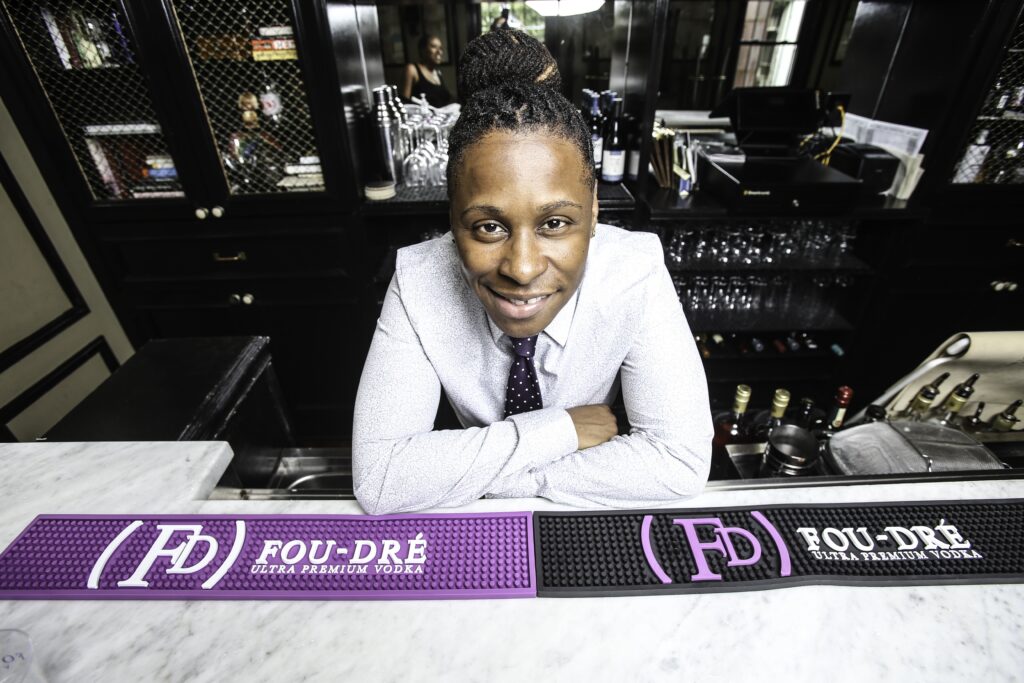
Chanel Turner—Creator— FOU-DRÉ Vodka
Once a government contractor, Turner spent more than six months researching distilleries with the technology to produce the quality of crisp, clean vodka she wanted. Today, her “lightning” brand has robust Asian sales and a strong online market. She’s also the founder of the Black-Owned Spirit and Wine Festival in Washington, D.C.
Signature Spirits: FOU-DRÉ Vodka
1. I’m most proud that we’ve been able to sustain in an industry that sees many brands come and go. Looking back, I identified a problem that many can relate to, with vodka being a spirit that people tend to grow out of. At 25, I knew I wanted a “better experience” when consuming spirits without having to use sugary mixers. I realized I would have to source the right distillery to bring my vision to life. It took months of research, formula tests (87!) and market surveys to come up with the infused formula that’s found in a bottle of FOU-DRE today. We’ve not compromised the unique taste or exquisite packaging of FOU-DRE in any way—that truly makes me proud.
2. I’ve learned to celebrate the small wins and appreciate the journey. The older I get, this matters more than ever before. Essentially, I’ve grown with the business, becoming a proprietor at such an early age. Outside of what it takes to build a spirit brand, I’ve learned patience!
3. My advice would be to make the right alliances early on. Though we’re seeing more women come into this space, it’s still a male majority industry. So it’s important that we unify, join together and share moments of pains and progress. We can learn so much from one another and get ahead of the game by tapping into each other’s resources. When I first started, there was a small percentage of women owners/distillers in the industry. Even more disheartening, there was an absence of platforms for community-building and very little visibility for women in the field. We’ve come a very long way but still have far to go. I encourage women coming in the industry to network, network and network some more! Make your presence in the industry known. When one wins, it’s a win for us all.
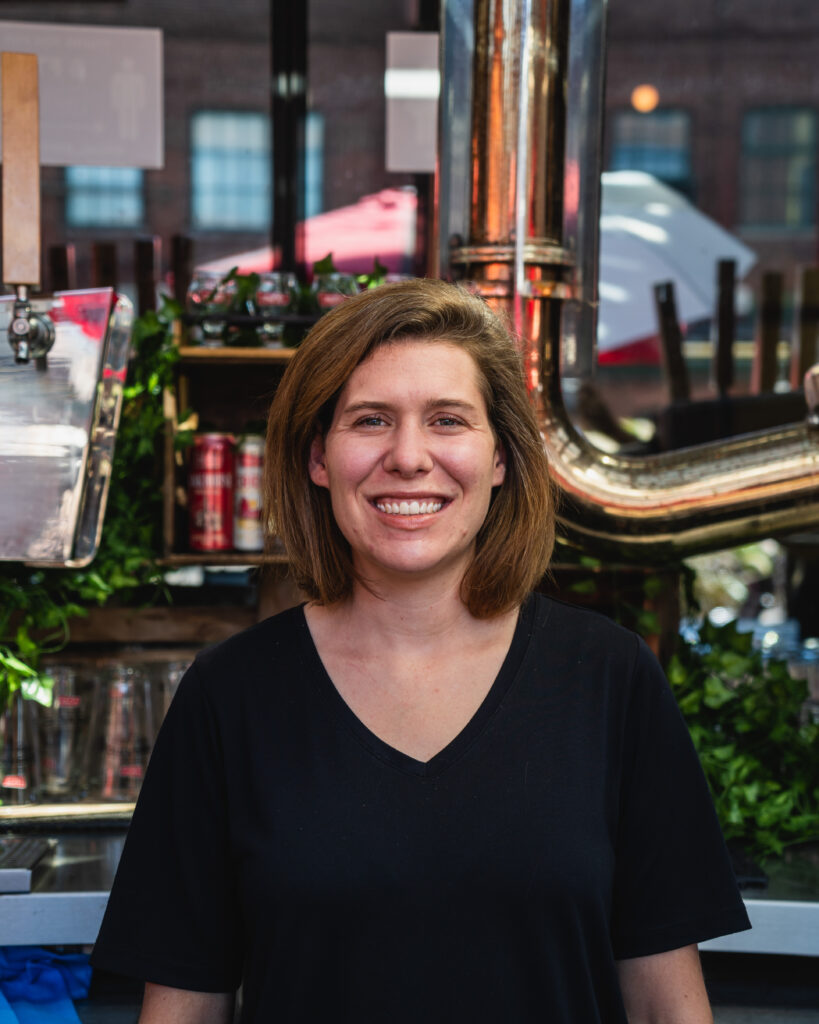
Kaitlin Vandenbosch—Head Distiller/Brewmaster— Mill Street Brewery
After earning a master’s in brewing and distilling at Heriot-Watt in Scotland, Vandenbosch started at Mill Street in Toronto in 2013, just when it was expanding into micro-distillation. She advanced in many management positions since then, helping Mill Street refine its line. In 2019, she became the organization’s brewmaster.
Signature Spirits: Single Barrel Canadian Malt Whisky, Tankhouse Bierschnaps, Small Batch Gin
1. There are two things I’m proud of: first, Mill Street brought distilling back to the Distillery District in 2013, and I was the first head distiller. Spirits hadn’t been distilled on-site since the mid-1980s! Second, during my time as head distiller, I set down two barrels of whisky. Since it was very small scale, I was able to take a lot of time and care with the recipe design, aging and blending. I am really happy with how both turned out (released in 2017 and 2018).
2. It’s fairly technical, but one of the most useful skills that I learned from my former boss, Joel Manning, is benchtop trials. This comes in handy when determining flavor additions, final alcohol strengths, barrel blends, cocktail designs, and so on. It’s extremely useful to dial in on a small scale the flavor profile you’re aiming for and then adapt it to a larger scale.
3. Network! I believe it’s really important, especially in craft distilling, to meet others in the industry or similar industries. There’s also a lot of overlap between brewing and distilling and wine/cider making and distilling. Similarly, it’s good to meet people who are the end-users of your product—bartenders and customers. Networking is a great way to share ideas, learn about events, ask questions and make connections.


